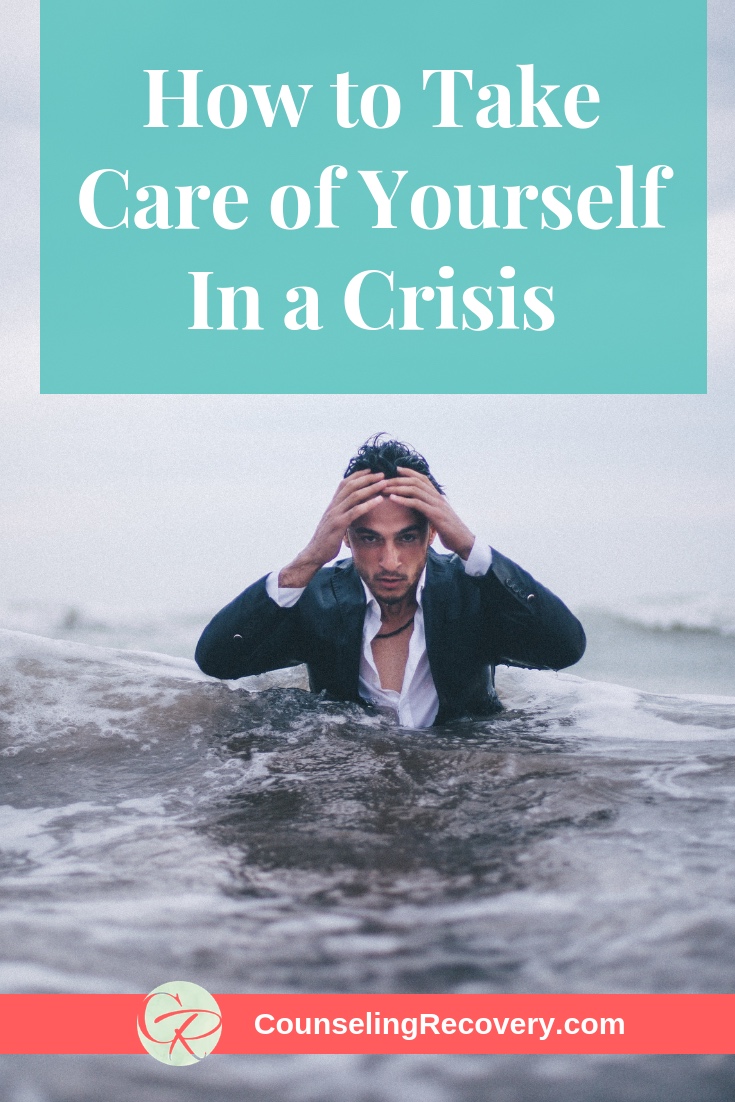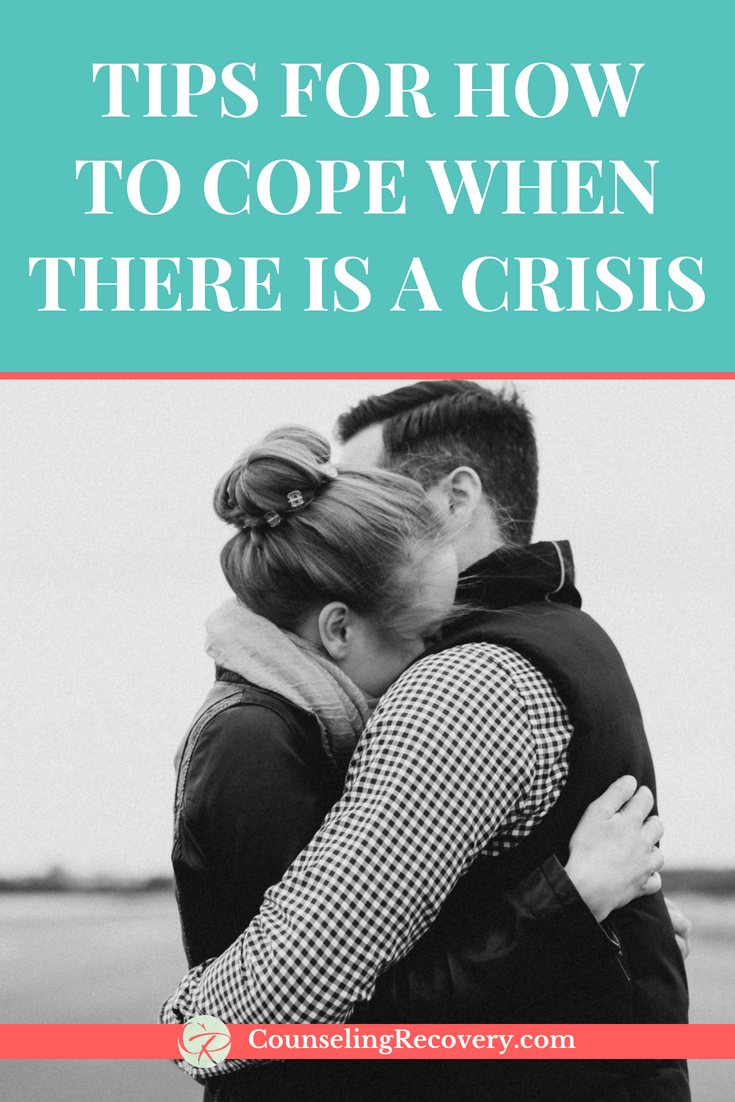How to Take Care of Yourself in a Crisis
A crisis is often a turning point. A time of uncertainty is also an opportunity to be still. When we’re in fear, it feels like real a test of faith. Being in the middle of it, you hold on for dear life. Forgetfulness, trouble focusing, depression and feeling more anxious are common.
It’s critical to take extra special care of yourself right now. Crisis can rock you to the core - especially when it's unexpected and you don’t know what to do.
Your ability to cope with the crisis will help determine the quality of life you will have after it’s over.
What qualifies as a crisis?
Loss of a loved one, or pet
Unexpected world events
Serious health issues or illness
Accidents resulting in trauma or injury
Break-up, divorce or separation
Any type of abuse to self or loved ones
Victim of a crime
Coping with a crisis is more manageable when you can find the gift or the lesson attached to that experience. This will take time but a gift will emerge eventually.
Everything will slow down for awhile and that’s okay.
For me losing my dad to cancer was my first real crisis. As a young adult, I had no perspective. Joining a support group became my lifeline. It took about 18 months of intense grief but I came out stronger on the other side.
Ironically, it was living out my worst fear that made me gain confidence. I knew I could get through anything after that.
Consider this for yourself. Time passes slowly when we’re in crisis but that isn’t necessarily a bad thing. Embracing our present experience together is how we will get through this!
By ignoring the pain, we create our own suffering. Please don’t stop sharing your experience. Isolating makes life harder than it needs to be.
Each challenging experience is a test of our faith and our ability to be still. We typically don’t learn how to get through a crisis but that's why I'm writing this for you.
Here are some important lessons learned from challenging times.
1. Everything Stops - If You Let It
Pretending that nothing is happening comes at a price. During a crisis, your physical and emotional energy are typically lower than normal. After an initial surge of adrenaline, you may start to feel fatigued physically and emotionally.
Suddenly, the simplest things take a lot out of you. Denial is a normal stage when adjusting to a “new” normal. Obsessive thinking about what you could have done differently may show up. Let those thoughts melt away from you. This is not the time to waste energy on blaming yourself.
How to cope during a crisis
Lesson: Let everything slow down. Get back to basics like getting enough sleep, healthy food, fresh air and practicing healthy comforts.
Now is the perfect time to watch Netflix, curl up with a blanket and read your favorite book for comfort.
2. It's YOUR Turn to Get Support
During a crisis some will naturally feel more alone and isolated. Reaching out is essential to stay connected with family and friends.
"I can't bother anyone, they have their own lives" is just not true!
Everyone needs each other to feel a stronger sense of community. The need to feel a part of is critical in how we cope.
Allow yourself to receive so you get the support you need. Otherwise, you unknowingly make the process more painful than it needs to be.
A crisis is always hardest when endured alone.
If you’re not comfortable asking for support, find healthy alternatives. Join a local Meetup group, try Al-Anon, a 12 step program for friends and families of addicts. Click here to read more on 12 Step groups. There are lots of online meeting options out there.
Lesson: When you're in crisis, ask for help. Isolating makes it worse and by staying connected you are being of service to others as well. No one wants to be alone.
3. Let Your Feelings Out
Let yourself feel the feelings so that you can move past the pain.
Avoiding the pain takes a lot of energy.
Compulsive behaviors are the fastest way to avoid painful feelings. They may provide relief in the moment but long-term it postpones the pain and causes you to feel more isolated.
With the right support, enduring a crisis is much easier. When you can feel your feelings in the moment, you get relief. Your body can relax because you’re not fighting them. Plus, they won't morph into addictive behavior!
I've seen this so much in my counseling practice. When feelings get denied, they create anxiety, depression, health problems, or feeling disconnected. Being able to handle emotions benefits you in every area of your life. Work, family, friendships all improve when you are emotionally in tune with yourself.
Lesson: Do the "feeling" work now so you can avoid developing unhealthy behaviors and prolong the stress.
The Courage It Takes
The process of healing is the same for any crisis. Self-care has to be the priority so you have the reserves to cope. This is not the time to make any major changes or take on new responsibilities. Your personal energy needs to be conserved. Getting extra support is always recommended. You deserve that!
Not knowing what to expect can feel unnerving but we will get through this together. By keeping in close contact with others you can avoid sinking into a depression or struggle with panic attacks. You can come out the other side. I've done this more times than I can count, and I'm healthier because of it and so can you.
Join me for my weekly relationship tips plus access to free downloads on boundaries, anger, conflict resolution, addiction and more. Click the image below to sign up.




